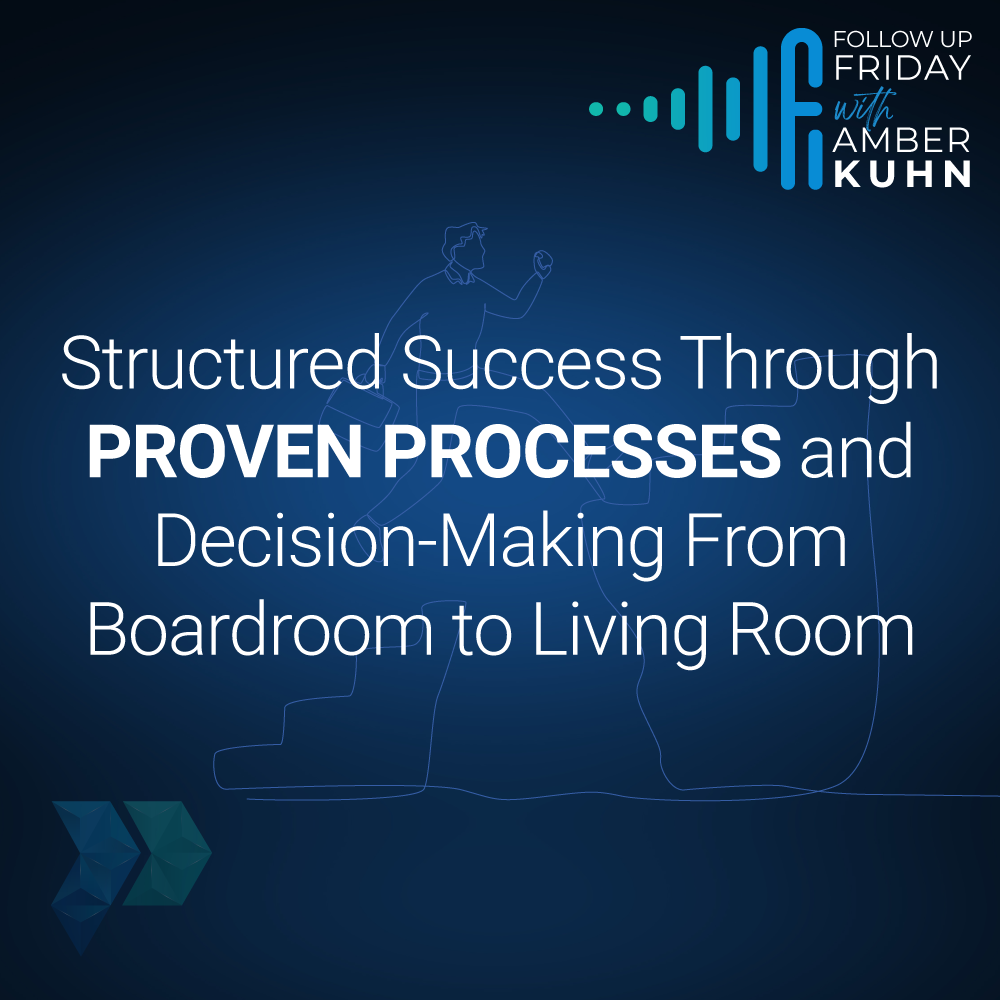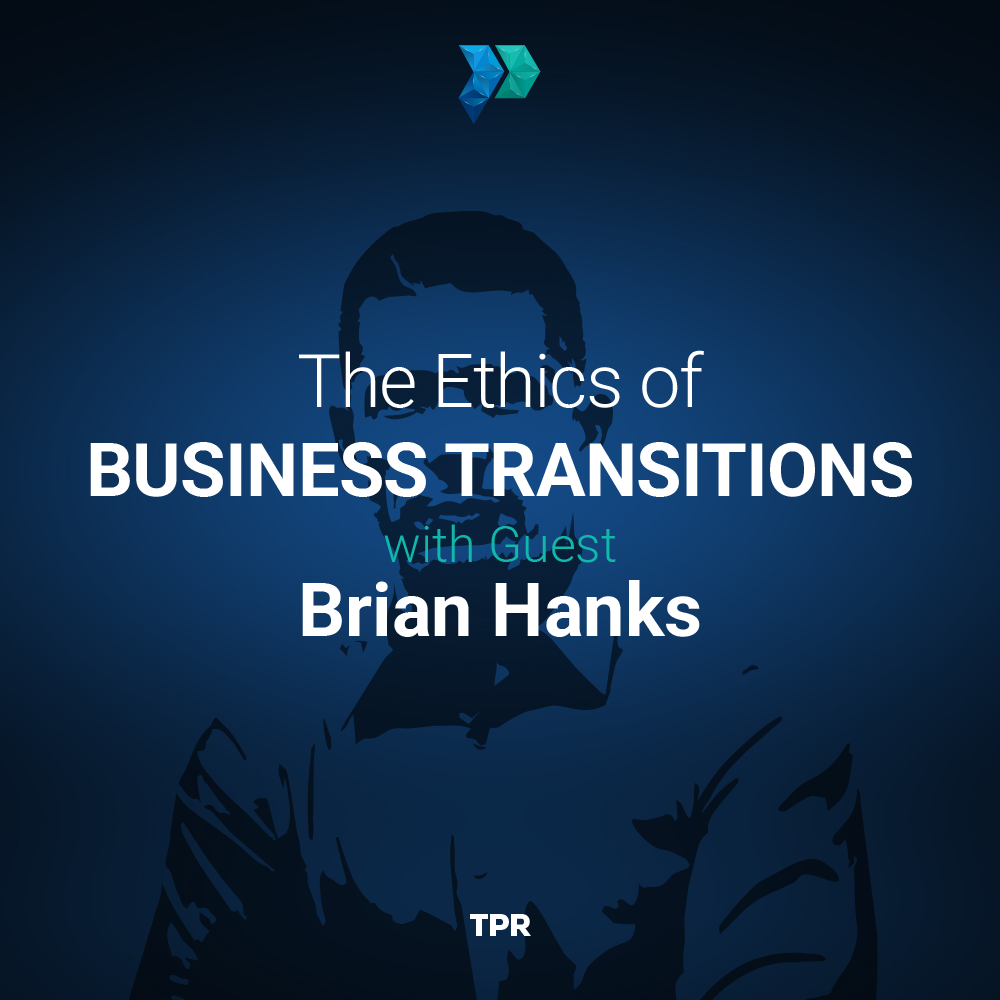What You'll Learn In Today's Episode:
- Focus on being effective rather than just efficient in your advisory practice.
- Duplicate successful processes and strategies from other successful advisors.
- Pay attention to the details, such as hiding client names during profitability analysis.
- Set deadlines and avoid skipping steps in processes.
- Find humor in challenging family situations and communicate with your spouse about decision-making pressures.
In this Friday recap, Amber explores the crucial difference between efficiency and effectiveness for financial advisors. She highlights Matt and Micah’s discussion on leveraging proven processes and replicating successful strategies, emphasizing the importance of attention to detail and strict adherence to deadlines. Amber stresses how these practices can significantly enhance an advisor’s effectiveness and overall performance.
Resources In Today's Episode:
Read the Transcript Below:
Amber Kuhn 00:35
Hello TPR Nation. This is Amber Kuhn. Thank you for joining me on today’s Follow up Friday where I’ll be recapping this week’s episode highlights and action items. On Monday, Matt and Micah were back together after being away from recording for some time. The guys shared that they’re ruthless about effectiveness, but where they see advisors go wrong is cutting out steps to do something that may not seem important, but those steps end up being critical. This can happen when it comes to understanding client profitability, surge meetings, your prospect process and more. So consider this. You can solve for efficiency and do things as simple as possible, but in order to be effective, you need to be focused on solving for a great outcome, and that might mean adding steps to your process. And with a process, you need to consider where it came from and whether every step is intentional and necessary. If someone has a process and is crushing it, then you need to duplicate that 100% and once you’ve implemented it and it works for you, then you can look to see if you need to modify that those little details matter. Matt and Micah shared a story of an advisor pushing back on a process with running a client ability report and transferring clients, and how it’s easy to bring your emotions into it. When you have to remove the names from that list, it’s impossible to be objective about your own practice. And really, the only time you want to look at the names with this is when you’re doing a report, and you’re looking at the names without numbers, and any time you see a certain name, you cringe. Remember your C level clients are someone else’s a level clients. So this advisor that they talked about didn’t follow the recommended steps of hiding the names first and then running those numbers. Another example is figuring your gross number or any other real number. When it comes to your finances, you need to know those real numbers so you can then have a discussion about the value that’s being delivered with what your clients are paying. Men like I’ve come across advisors who claim they’re making enough money or they’re taking enough time off and that they don’t need to look at certain things they said once you stop being critical in one area of your practice, it’ll spread to every area. Micah shared a comment from Coach Joe Lucas that comfort is the cancer of success. Things like this will constantly erode your practice. The guys said that you also need to set deadlines saying probably just means never. You need to have an exact date on your calendar for when you’re going to do things. It’s easy for things to come up and derail your plans. The guys said that the reason people skip steps and processes is because it’s hard. You don’t know how clients will respond to things like you being out of the office for a while, or what concerns your team has, or hide in the names of your clients when you’re doing the profitability analysis. But these hard things matter, and you have to be willing to do the work to be successful and transform your practice in your life. Let’s get into action items. Get a physical wall calendar and map out your Surge value. Add personal and professional development and your family time, and write down your steps inside of your processes, or have someone else write the steps down and check to see whether you’re actually doing the steps you think you are. And if you have any great ideas for what you’d like to see with the podcast, reach out to us at lifestyle@theperfectria.com. On Thursday, Jamie wanted to share her tips on handling decision fatigue and balancing being a financial advisor and being someone significant other. She talked about how with her family, there are some strong personality women together, they tend to say some things to each other that can come across as rude or hurtful, but they’ve decided to make a game out of it. This has worked in their favor because it adds humor to a situation and to the person who the comments are directed towards. Jamie pointed out that there are other options. They could create boundaries, but who’s to say that other people are going to adhere to those? And it also creates a sense of walking on eggshells. She said, when families get together and agree to keep the peace for one person, the only person’s peace that’s kept is that one person so ultimately, in her family, they choose laughter and happiness, and they don’t let this derail their family. But Jamie said when she does fight with her spouse, it’s typically because she’s suffering from decision fatigue. She said with being the boss in so many different organizations, she has no problem making decisions, and that she may not always know exactly what she wants, but she knows what she doesn’t want, so she’s quick to make those decisions that are needed. Same thing with communicating with employees. If there’s a corrective action needed, she doesn’t wait to deal with it. She brings it up immediately in private, so things get corrected on the spot, and the team is on. But where the decision fatigue comes into play is within her own household, especially with her spouse. She doesn’t want to make the decisions and have the repercussions if they’re pointed out to be the wrong decisions. Jamie talked about how so much of what you do every day is a choice from your thoughts and your feelings to how you present yourself to others and how you navigate your relationships and balance who you are to your clients, your team and your family. You spend the day being the authority with your clients and their money, and then you come home, and you tend to shed that part, and you want someone else to make the decisions. Jamie said, you need to talk with your significant other about this and explain how your day goes and the decisions that you’re constantly making, and how when it comes to smaller things at home, helpful, turn that over to someone else. You have to communicate that with them, or they won’t know or understand. Let’s get an action items. Make a gift. Find joy and laughter in the things that can make your family crazy. Keep an open dialog with your spouse and talk about the pressure that you have during the day. That wraps up this weeks recap. So TPR Nation, if you’re looking for more resources. Or if you have a question, be sure to email us at lifestyle@theperfectria.com. Thank you for joining me, and please share this or any of our episodes with another advisor or team member who you think might benefit from listening. And be sure to subscribe to The Perfect RIA podcast so you don’t miss an episode until next time. Happy planning.








